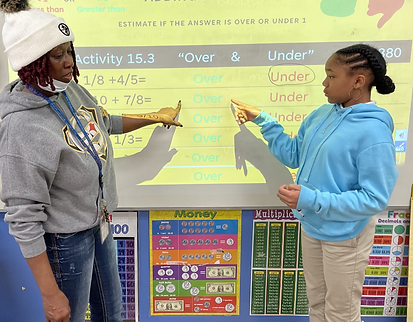Related STEM Careers
Checkout the videos below to learn more about these STEM caeers.
4th Grade Partnerships
Thanks to all of our partners!

Fulton county public works held a learning session on the water cycle.



Palmetto elementary shared student created brochure on water pollution to all students and parents.
Research and Building Background Knowledge

Students read a book about sound. Student recorded what they learned in their stem journal.

Students research where water is found and where it goes.
Math Integration Samples

Students review math skills in STEM.

Students use a tally chart to record information.
Community Impact
Community Impact Summary
Our 4th-grade STEM PBL project addressed the question, "What can we create to limit the contamination of our local water system?" Students explored the causes and effects of water pollution, the water cycle, and the impact of climate change on water resources. They applied their learning by creating infographics that highlighted solutions to reduce water contamination and shared these with Palmetto Elementary to raise awareness in the broader community.
Pretest results showed 32% of students understanding key concepts related to water pollution and environmental science, while post-test results demonstrated growth, with 46% of students mastering the content.
Standards Addressed:
-
Science Standards: Exploring the water cycle and its role in maintaining Earth’s ecosystems (S4E3) and understanding the effects of human activity on water quality and resources (S4L1).
-
Math Standards: Representing data related to water pollution findings and trends in visual formats, such as graphs and charts (MGSE4.MD.4), and solving real-world problems involving measurement (MGSE4.MD.2).
This project empowered students to connect their STEM learning to real-world challenges, equipping them with the knowledge and tools to advocate for cleaner water systems while fostering collaboration and environmental stewardship within their community.










